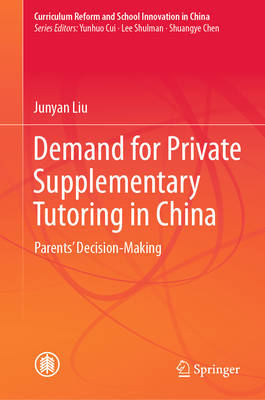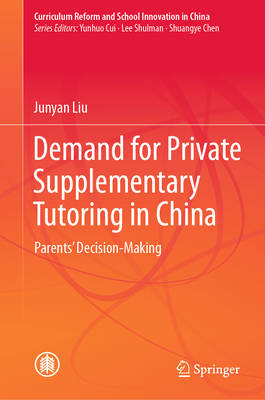
- Retrait gratuit dans votre magasin Club
- 7.000.000 titres dans notre catalogue
- Payer en toute sécurité
- Toujours un magasin près de chez vous
- Retrait gratuit dans votre magasin Club
- 7.000.0000 titres dans notre catalogue
- Payer en toute sécurité
- Toujours un magasin près de chez vous
Description
This book combines the ideologies of parentocracy and consumer theory as theoretical lenses to view the private supplementary tutoring, also known as shadow education, with a focus on the demand at primary and lower secondary levels in China. It first explains parents' motivations of seeking private tutoring and their decision-making dynamics, and then explores the evolving micro-level process of demand that has changed over time. It further investigates how demand for private tutoring varies across parental socioeconomic status. This book also discusses parents' attitudes towards the Double Reduction policy and corresponding changes in their demand for tutoring. It concludes with some implications for regulating private tutoring and for improving school education. This book has pertinence in other countries as well as in China. Unpacking the demand for tutoring improves understanding of the global expansion and changing shapes of the phenomenon.
Researchers, educational policy-makers, teachers, tutors, consultants, and other educational practitioners interested in the topic of private tutoring will find this work thought-provoking, instructive and informative.
Spécifications
Parties prenantes
- Auteur(s) :
- Editeur:
Contenu
- Nombre de pages :
- 117
- Langue:
- Anglais
- Collection :
Caractéristiques
- EAN:
- 9789819922017
- Date de parution :
- 30-05-23
- Format:
- Livre relié
- Format numérique:
- Genaaid
- Dimensions :
- 156 mm x 234 mm
- Poids :
- 376 g

Les avis
Nous publions uniquement les avis qui respectent les conditions requises. Consultez nos conditions pour les avis.






